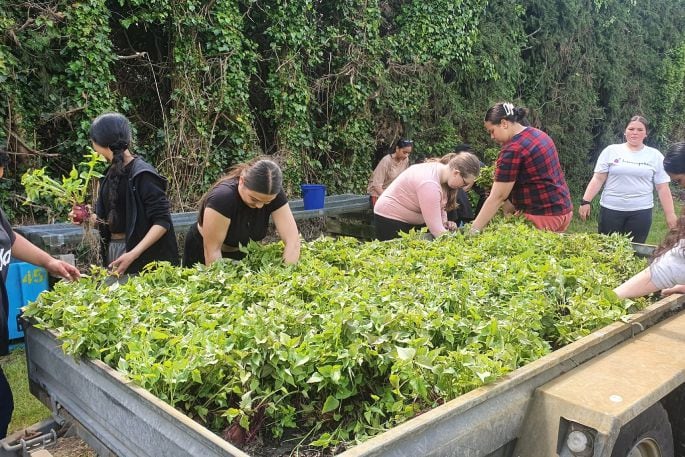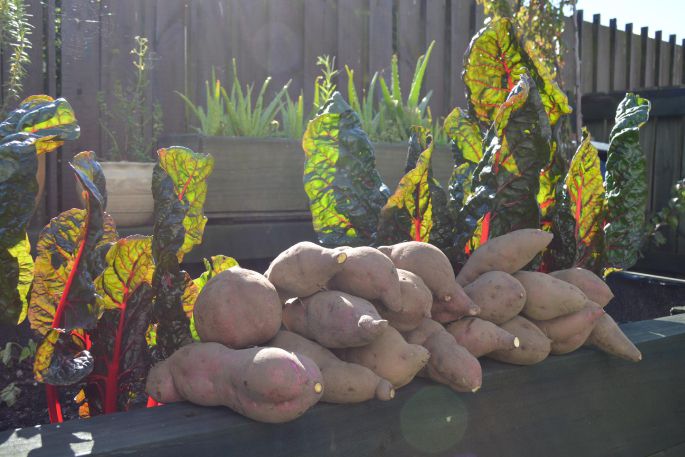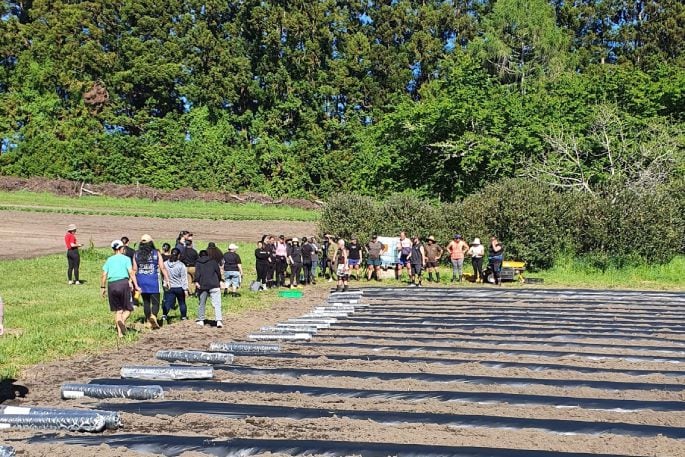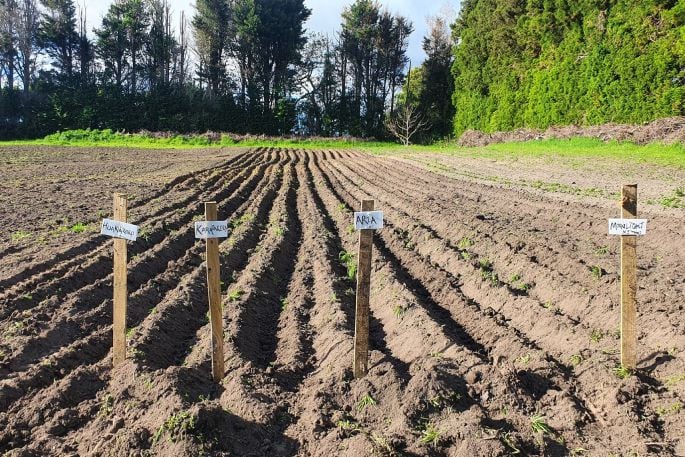Kai Rotorua’s commitment to teaching people how to grow their own food is receiving a major financial boost from BayTrust, allowing it to invest in new equipment and seedlings.
The volunteer organisation was formed in 2016 to initially plant free vegetable gardens in people’s backyards. It has since snowballed into a sustainable food movement, which is having wide-reaching financial, health and cultural benefits.
“We had to come up with a strategy to help people grow their own food, because back in the day, people did exactly that,” said founder and Kai Rotorua project lead Te Rangikaheke Kiripatea.
“Nowadays you’ve got massive sections with no vegetable gardens whatsoever.
“We wanted to teach people to create their own food so they didn’t have to go and purchase it, and to help them reconnect with Papatūānuku [the Earth]. It really struck a chord with people.”
Kai Rotorua now leases 8000sq m at Kaharoa and grows almost every vegetable you can think of. Workshops are regularly held to teach both adults and school children how to grow traditional and staple food crops, in particular kūmara and karoro, moemoe and taewa riwai (Māori potatoes).

Kumara is one of the staple vegetables in the gardens. Photo / supplied.
People are given seedlings and plants to take home so they can grow kai themselves, and information is shared on how to cook meals using traditional ingredients.
“We are not a food bank. In fact, our preference is that we shouldn’t even have food banks. People should be growing their own food in their backyards and that’s our whole purpose.”
Thanks to a $17,500 grant from BayTrust, a 40ft shipping container will soon be transported to Rotorua which will be used to store gardening tools and equipment.

People learn how to grow traditional and staple food crops, in particular kūmara. Photo / supplied.
Wages for Kai Rotorua’s two paid staff, and fuel to run the organisation’s ute, will also be partially covered.
“The money helps us purchase all the seedlings that we’re currently planting up, and new items like gardening tools,” Kiripatea said.
“Grants like this are absolutely vital and we’re very grateful. We have a number of funders who support us but BayTrust has been outstanding in the amount that they’ve been able to deliver to us. It’s wonderful news.”

Kai Rotorua leases 8000sq m at Kaharoa and grows almost every vegetable you can think of. Photo/ supplied.
Funding towards these operational costs has also given Kai Rotorua the confidence to invest in new facilities, with construction about to start on a new 20m-long hothouse and a new hempcrete facility to store kūmara when it’s harvested each March.
BayTrust community funding and policy manager Sam Cummins says food insecurity affects many Rotorua residents, some of whom have to go without fruit and vegetables in order to pay their bills.
“The voluntary mahi that Kai Rotorua are undertaking not only helps to address this issue, but is also helping reconnect whanau with Papatūānuku by passing on knowledge about traditional crops such as kūmara.

Potatoes are another staple vegetable grown. Photo / supplied.
“Kai Rotorua is helping to reignite people’s interest in their heritage as well as promoting a healthy lifestyle, and we are thrilled to provide this funding for them.”



0 comments
Leave a Comment
You must be logged in to make a comment.